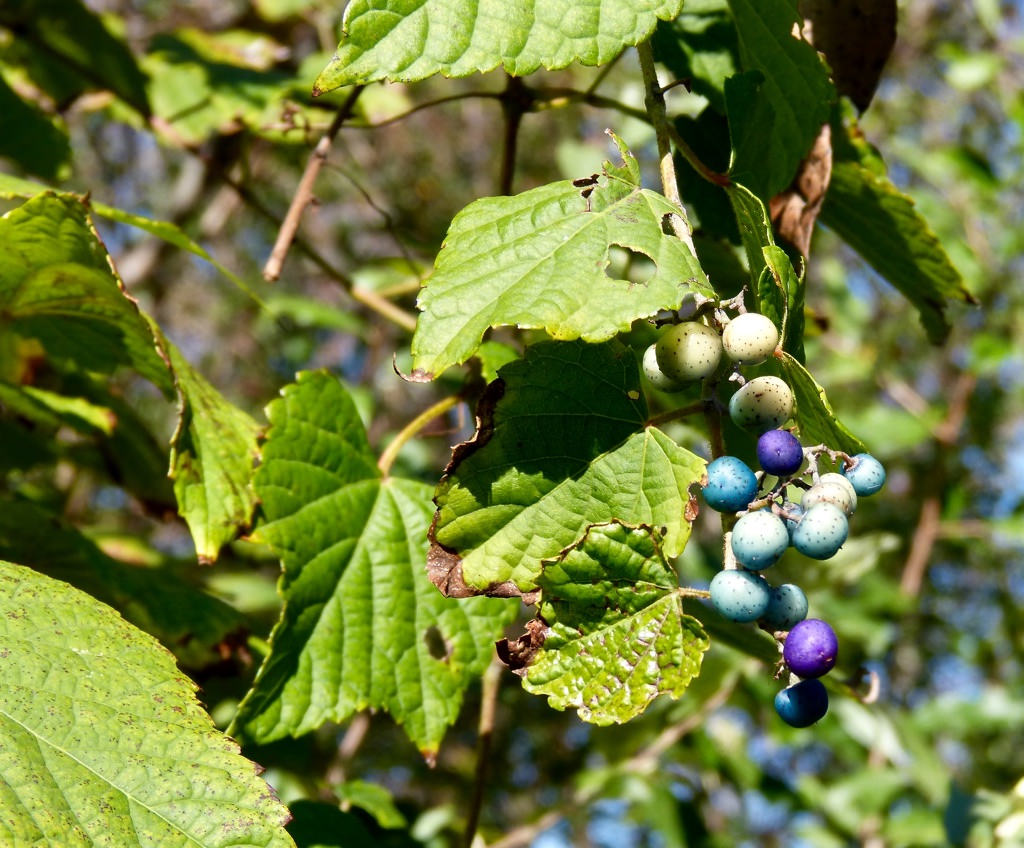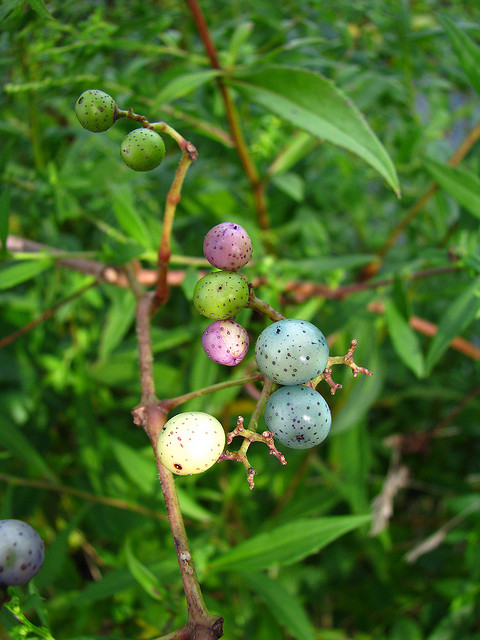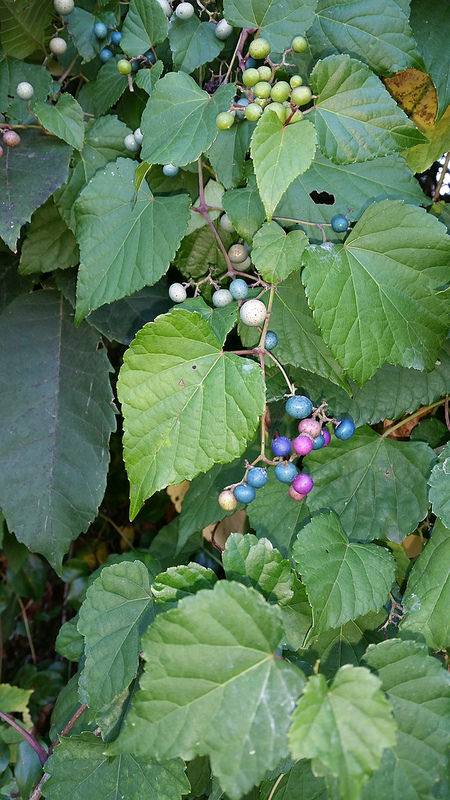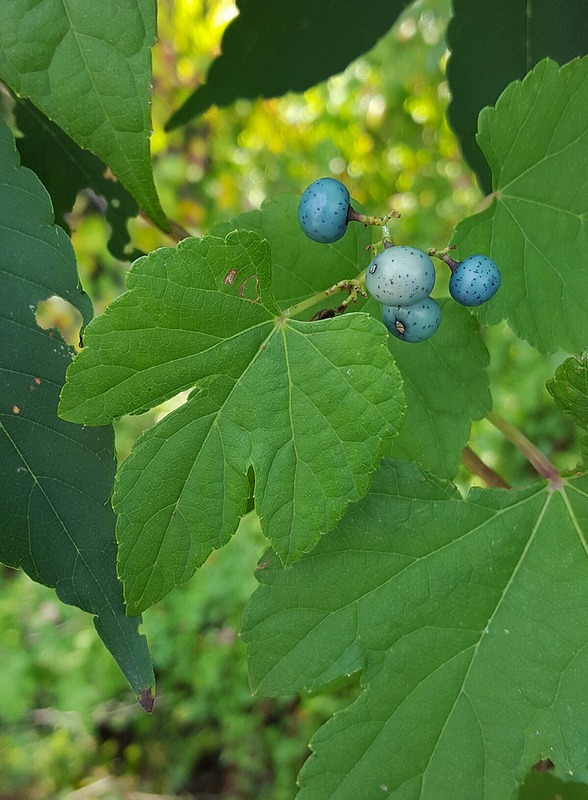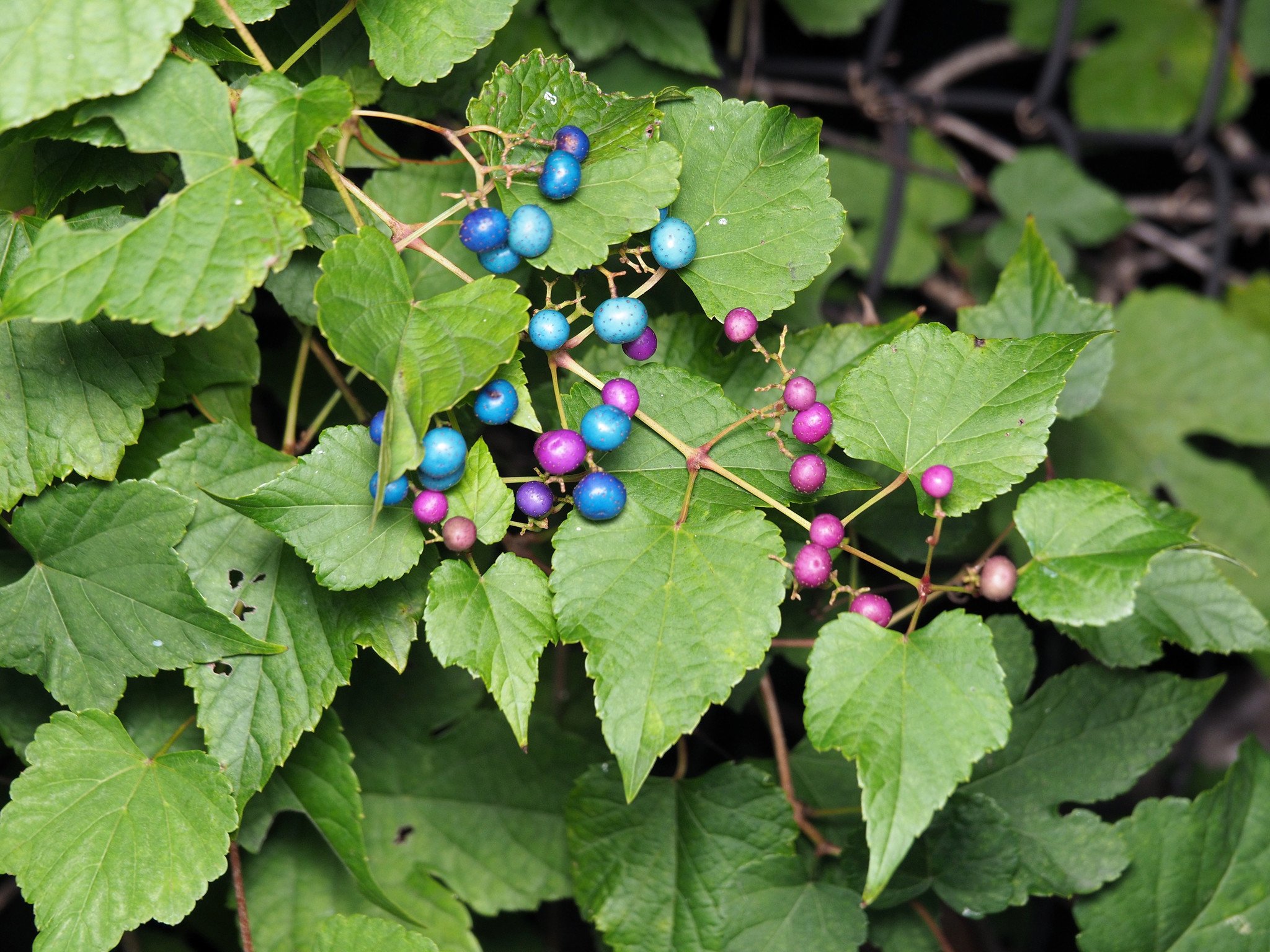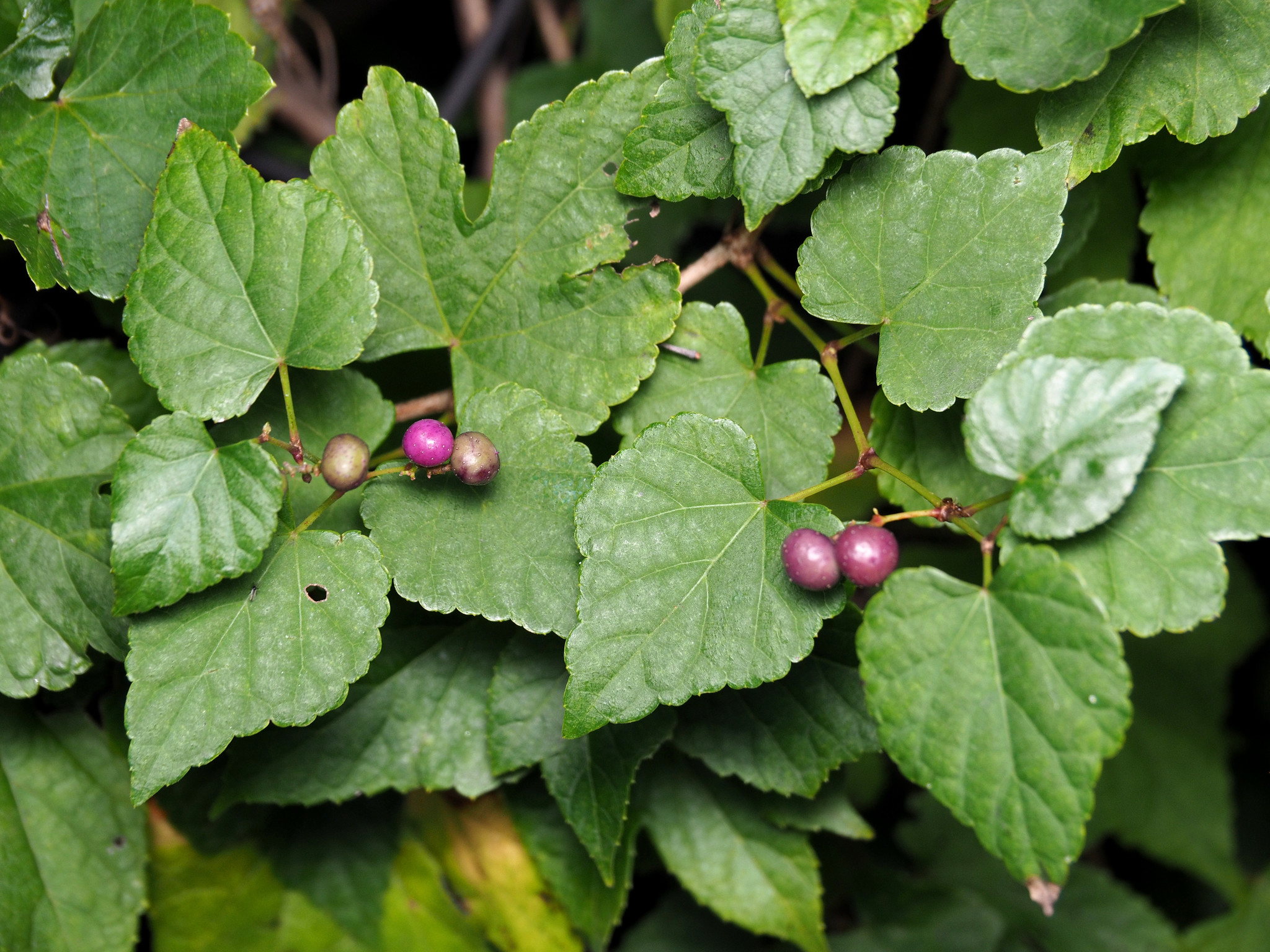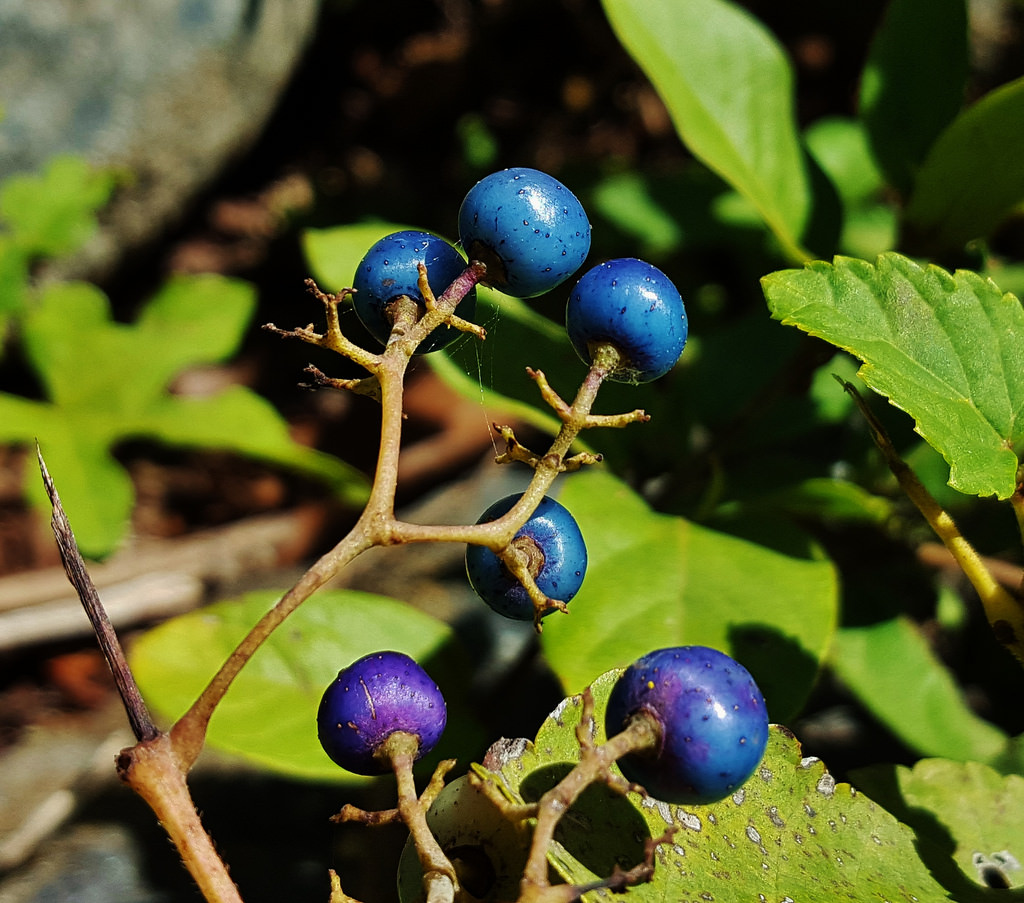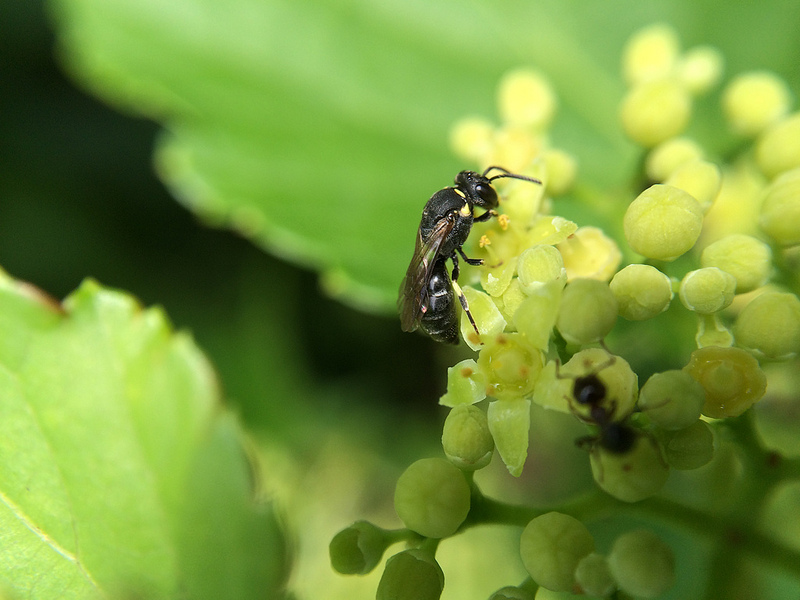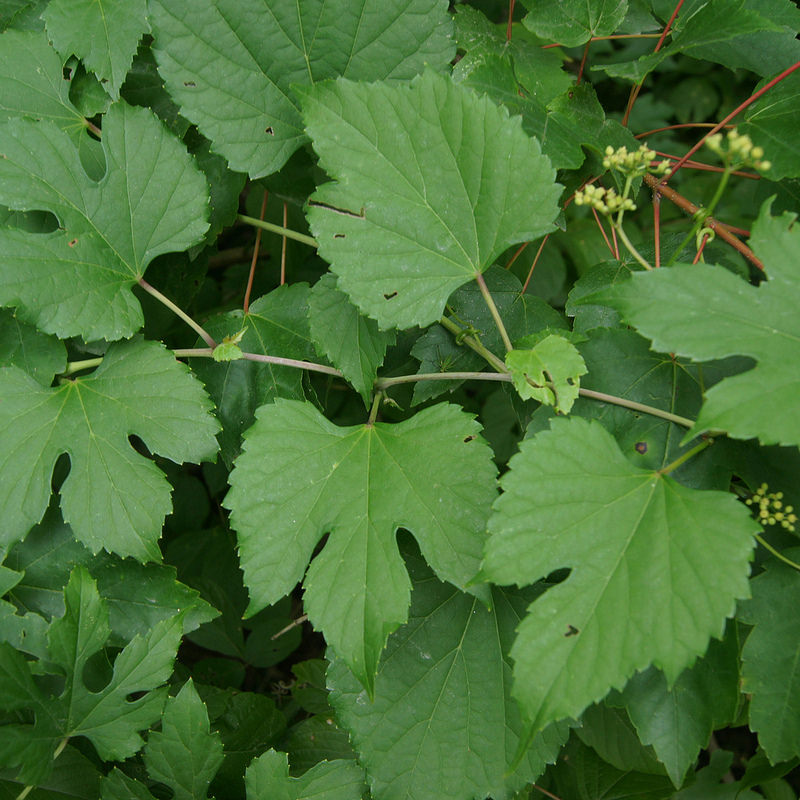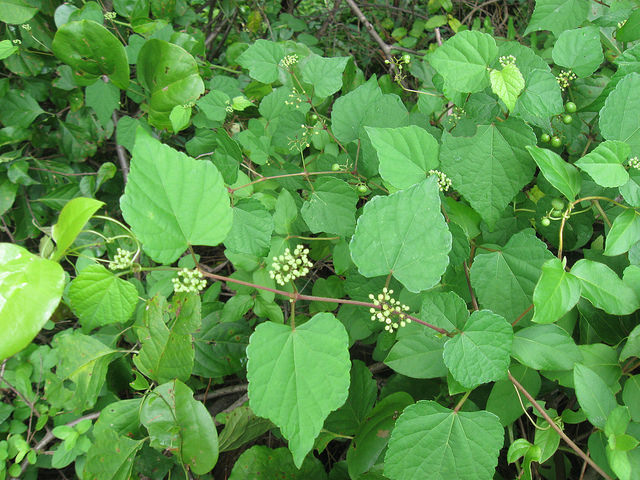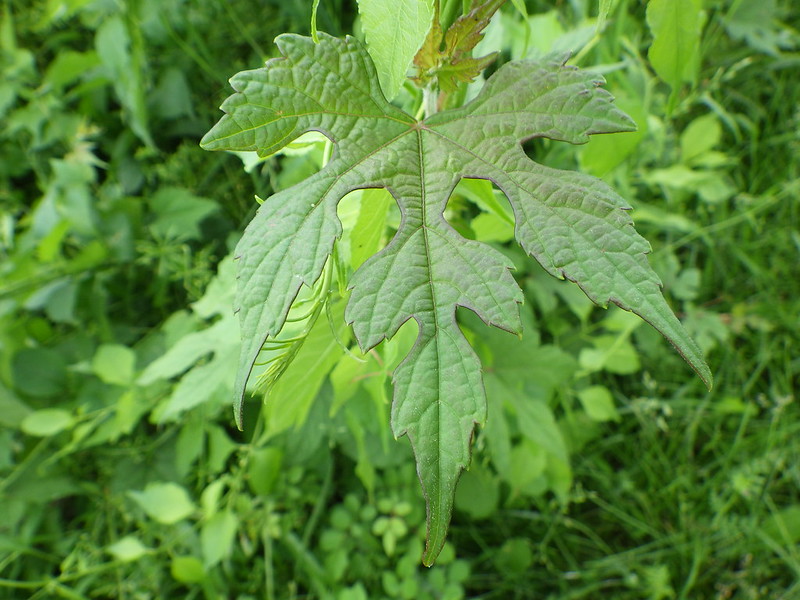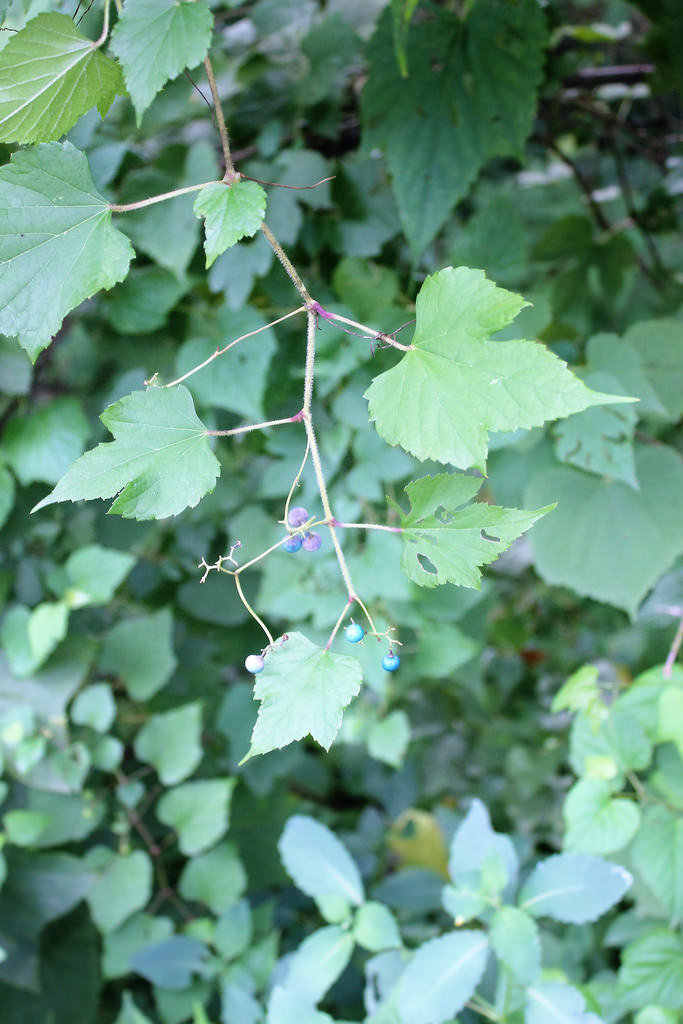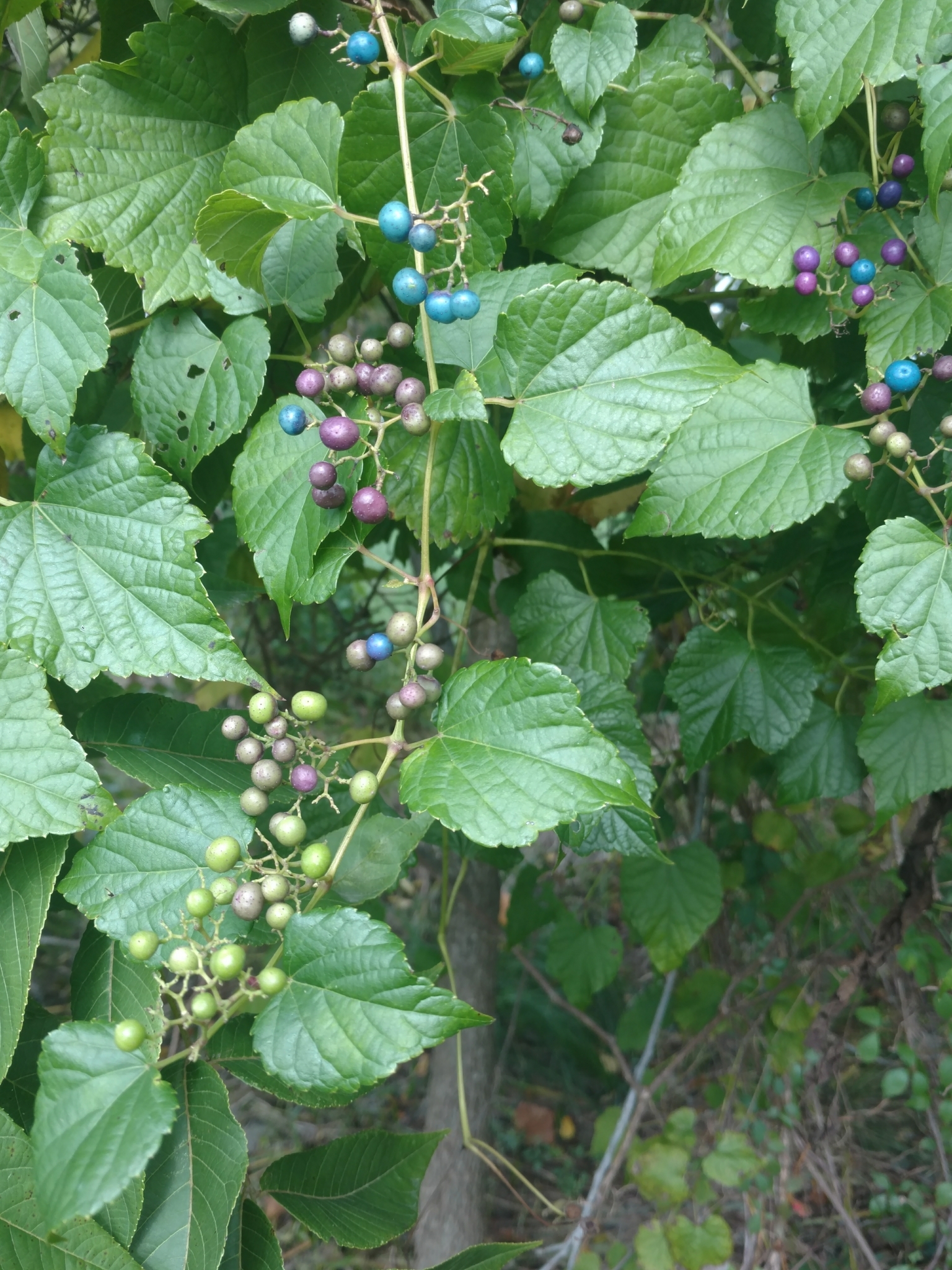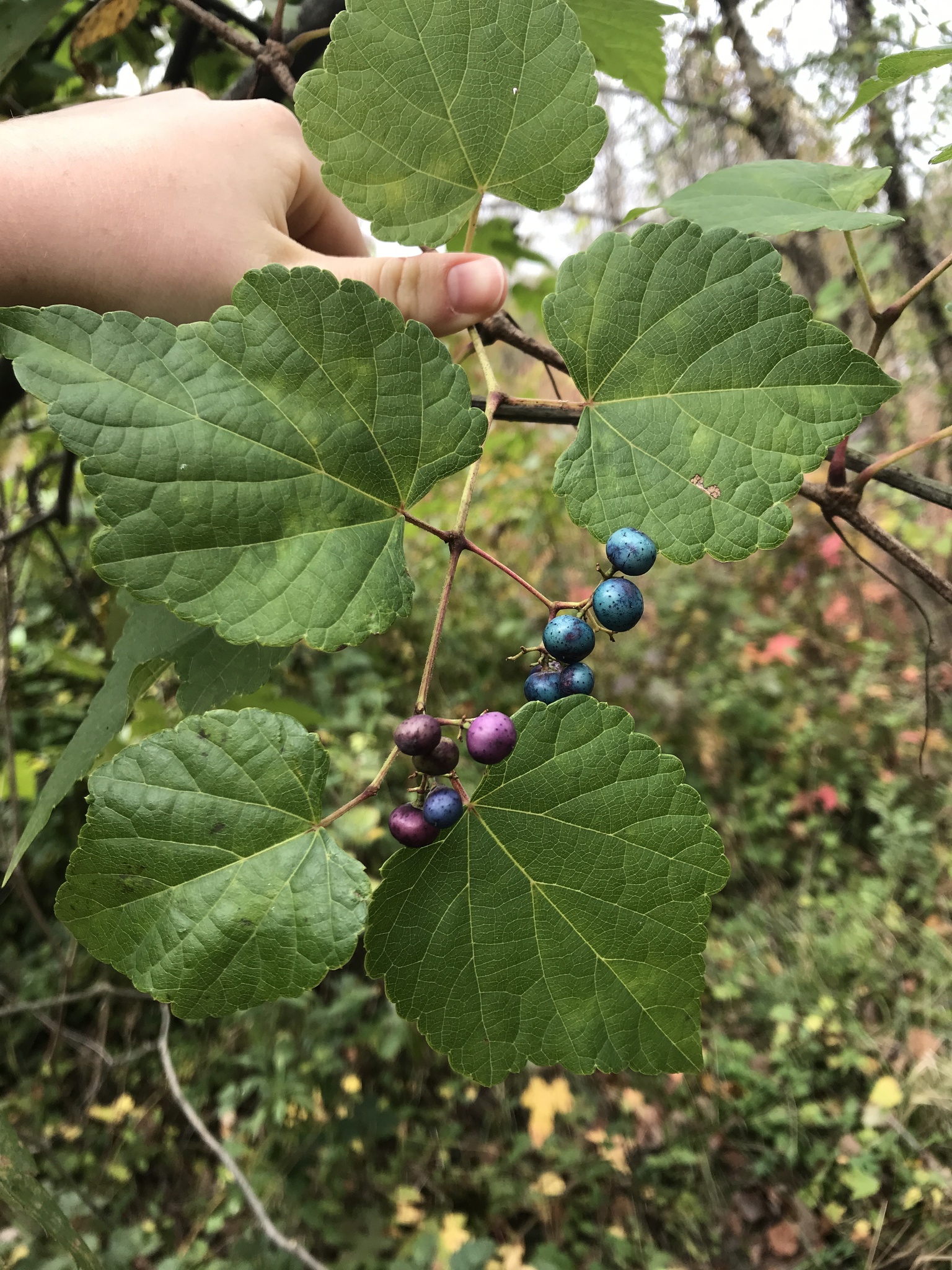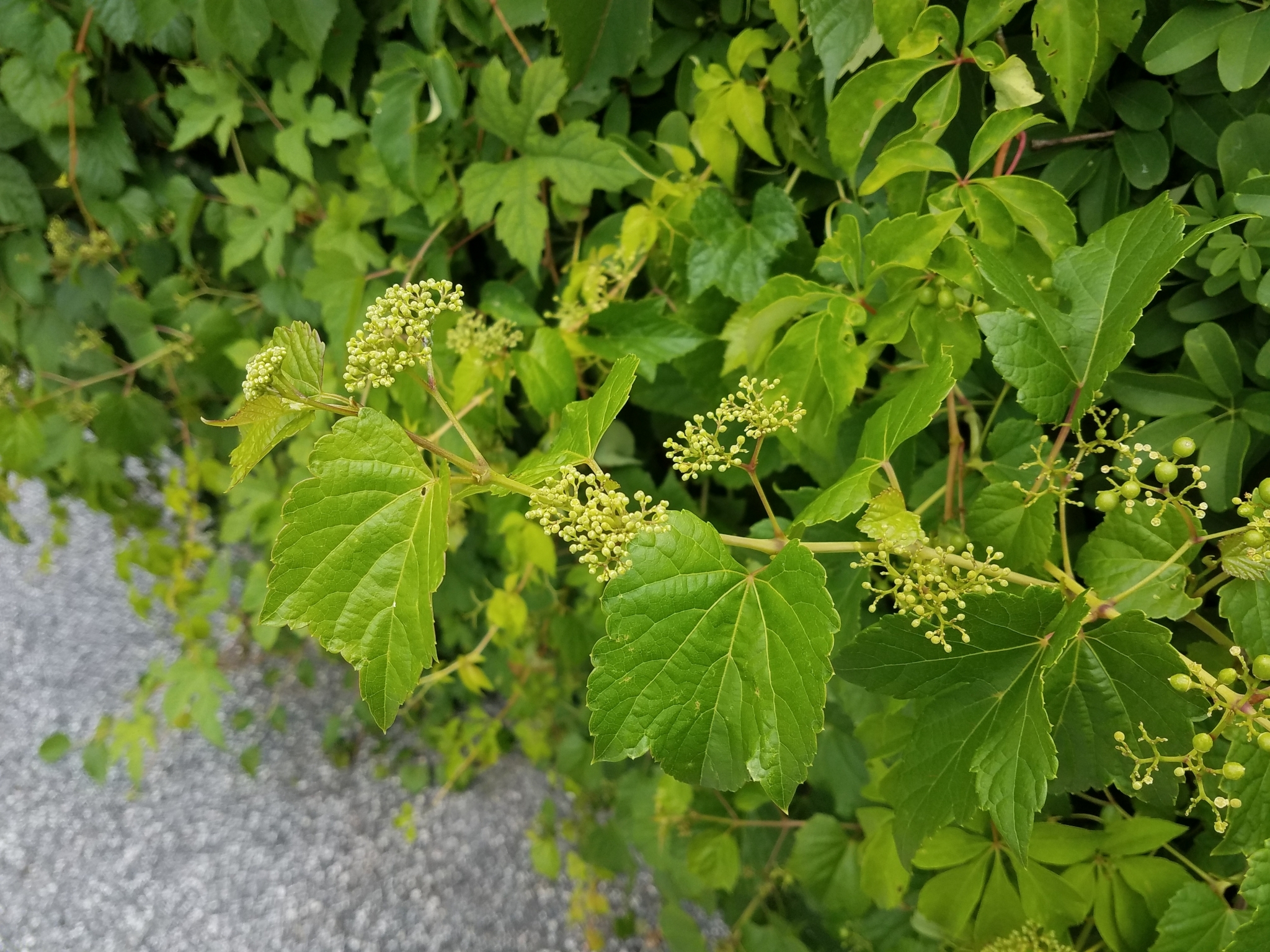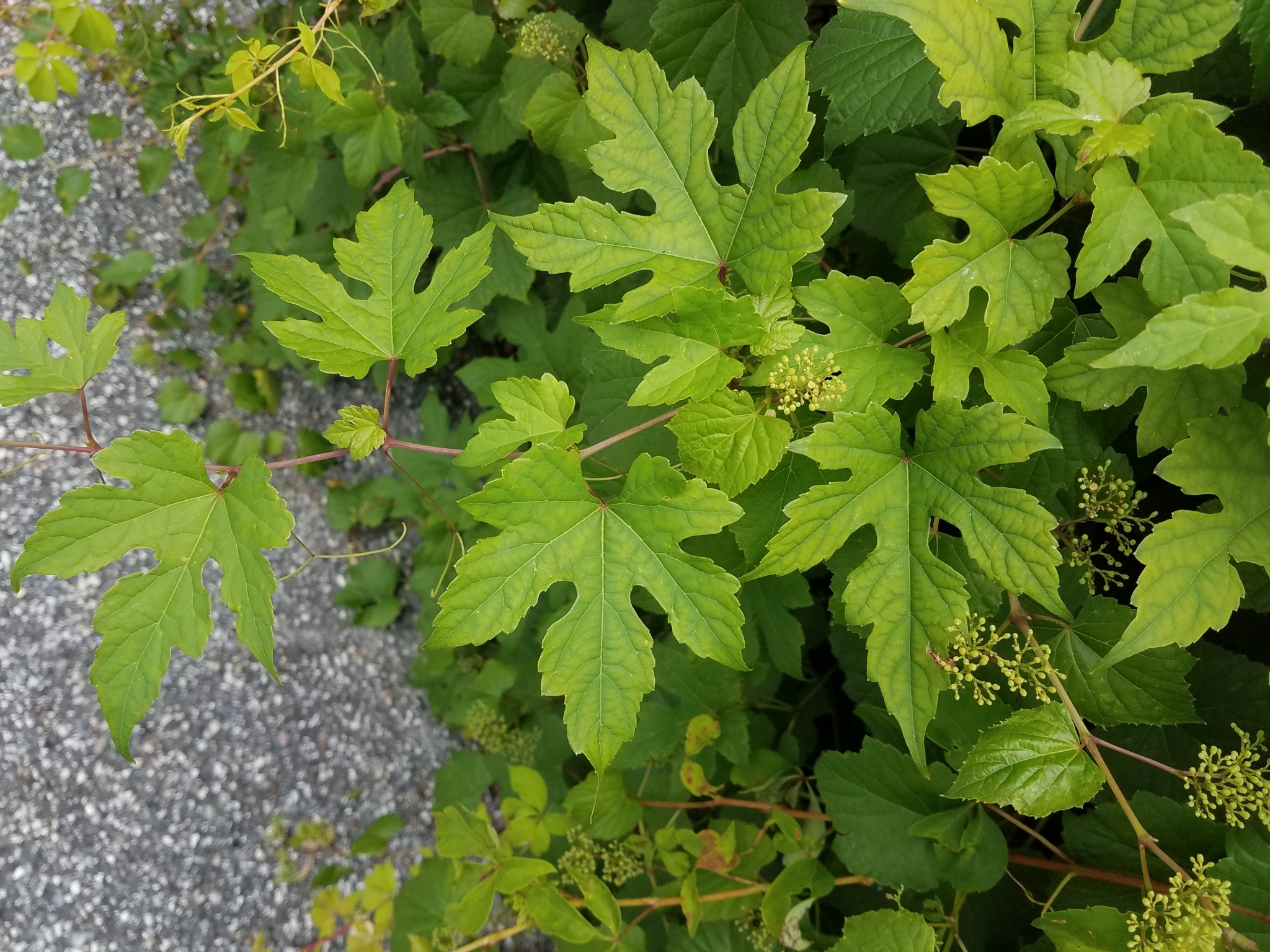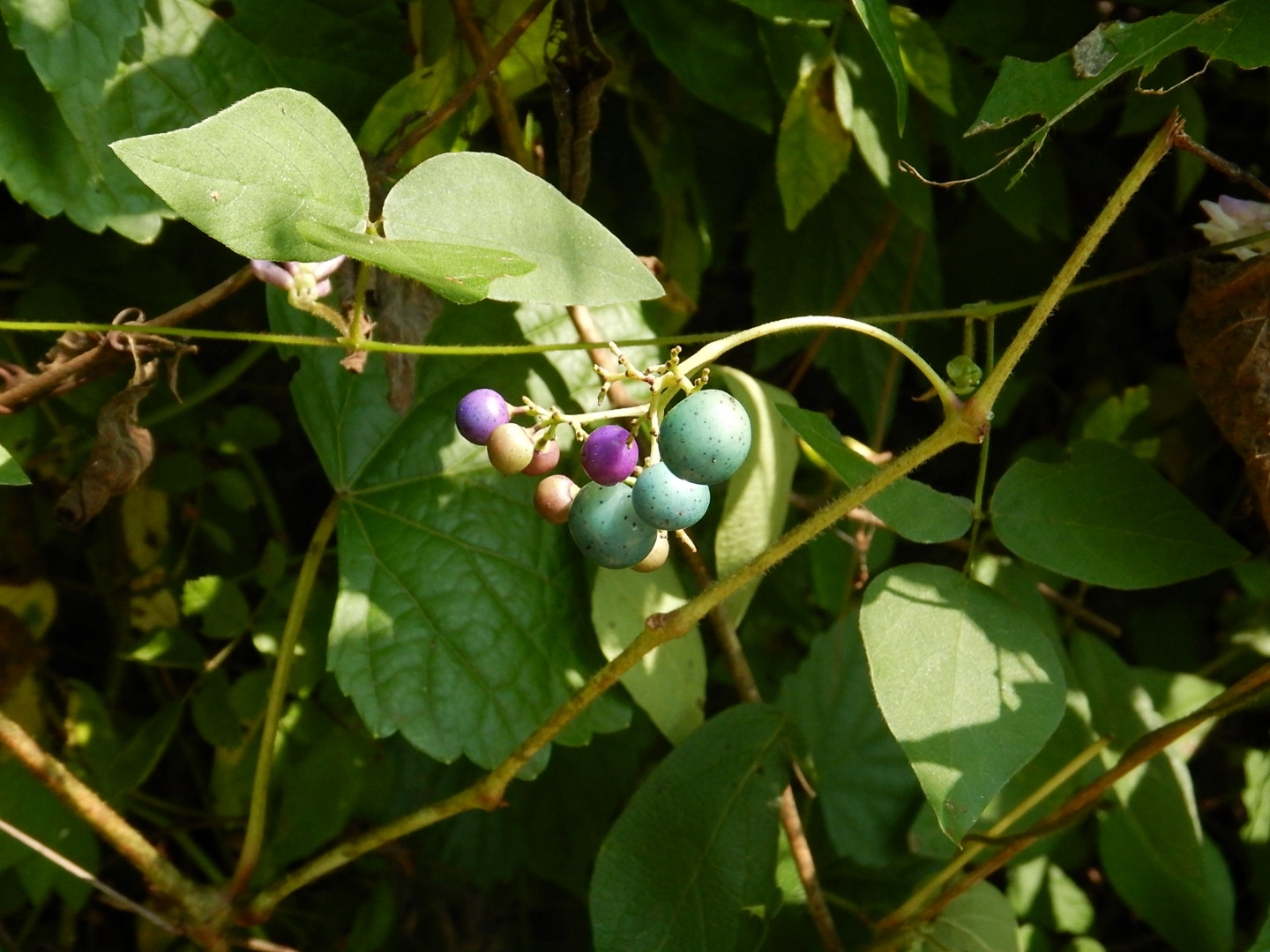Map Snapshot























656 Records
Status
Originating in Asia, Porcelain Berry vine is related to our grapevines, which are all native. Porcelain Berry has become an invasive threat in many eastern states, including Maryland. It can grow in most soils, and is especially common in open, exposed habitats, such as disturbed sites, edges of forests and ponds, along stream banks, in thickets, and in waste places. It is not found in permanently wet areas and does not thrive in the heavy shade of mature forest interiors. Porcelain Berry climbs over shrubs and small trees, sometimes killing them by blocking sunlight (Swearingen, et al., 2010).
Description
Porcelain Berry is a deciduous, woody, perennial that can be confused with our native grapes (See U.S. Department of the Interior, National Capital Region Network, Native Grapes Resource Brief). Porcelain Berry climbs by non-adhesive tendrils at the base of each leaf, and has brightly colored berries of various colors, ranging from pale pink to dark blue and purplish red.
Relationships
Birds love the fruits and spread the seeds widely.
Seasonality Snapshot
Source: Wikipedia
| Ampelopsis glandulosa | |
|---|---|

| |
| Scientific classification | |
| Kingdom: | Plantae |
| Clade: | Tracheophytes |
| Clade: | Angiosperms |
| Clade: | Eudicots |
| Clade: | Rosids |
| Order: | Vitales |
| Family: | Vitaceae |
| Genus: | Ampelopsis |
| Species: | A. glandulosa
|
| Binomial name | |
| Ampelopsis glandulosa | |
| Synonyms[1] | |
| |
Ampelopsis glandulosa, with common names creeper, porcelain berry, Amur peppervine, and wild grape, is an ornamental plant, native to temperate areas of Asia[2] including China, Japan, India, Nepal, Myanmar, Vietnam, and the Philippines.[3] It is generally similar to, and potentially confused with, grape species (genus Vitis) and other Ampelopsis species.[4]
Varieties
[edit]Several varieties are distinguished:[3]
- var. hancei
- var. kulingensis
- var. glandulosa
- var. heterophylla
- var. brevipedunculata
Description
[edit]


Ampelopsis glandulosa is a deciduous, woody, perennial climbing vine with flowers and tendrils opposite the palmately lobed leaves, which have three to five more or less deep lobes and coarsely toothed margins (with a small apicle). Porcelain berry climbs via tendrils to a height of 4 to 6 metres (13 to 20 ft). The tendrils cling to the supports by non-adhesive tendrils similar to those of Vitis vines.[4] The tendrils are opposite the leaves and have two or three branches.[citation needed]
The inflorescence is a corymbiform cyme, attached opposite a leaf. Flowers are small, green-white, born in umbels opposite the leaves, and appear in June through August. Fruits are 4 to 8 millimetres (0.16 to 0.31 in) in diameter, circular, containing two to four seeds, and may be many colors including green, blue, purple, pink or yellow with black or brown speckles; many different colors are present on the same plant. The berries are produced in late summer and fall. The seeds are dispersed by birds.[citation needed]
Porcelain berry can be confused with native grapes based on leaf shape but can be differentiated by cutting the stem and observing the pith. Grapes have brown or tan pith but porcelain berry has white pith. Porcelainberry bark is also covered in lenticels and does not peel, unlike grape bark.[5]
Distribution and habitat
[edit]Porcelainberry grows primarily in marginal habitats such as forest edges, pond margins, stream banks, thickets, and other areas of full sunlight to partial shade. It does not grow in permanently wet soils or heavily shaded areas, and is not typically found in the interiors of mature forests.[5]
Porcelain berry is found natively in China, Korea, Japan and the Russian Far East. It was introduced in 1870s to the United States as a landscape plant. Its invasive range extends from Wisconsin and Iowa at its westernmost extent to the Atlantic coastline at the east, where it is found from New Hampshire to Georgia.[5]
Cultivation
[edit]Ampelopsis glandulosa var. brevipedunculata has distinctive medium blue fruit, and is an ornamental plant used in gardens to garnish the walls and arbours. Porcelain berry is still widely cultivated despite knowledge of its invasiveness. If not properly managed it will become dominant on, and kill smaller trees. It will climb larger trees to the top.[citation needed]
The variety A. brevipedunculata "Elegans" is less vigorous than the type species. It has smaller leaves, mottled in white and pink, and it is more sensitive to frost. Porcelain berry often co-exists with Virginia creeper, poison ivy and sassafras.[5]
Ampelopsis glandulosa are not commonly cultivated for culinary purposes, as its taste is unlikable, being described as slimy and bland.[6]
Ampelopsis glandulosa is sometimes cultivated for medical purposes, such as in China where it used to treat clots, boils, abscesses, ulcers, traumatic bruises, and aches.[7]
Ampelopsis glandulosa was banned in Delaware as of July 1, 2022.[8]
Invasiveness
[edit]It is a major invasive plant species in parts of the Eastern United States. It is invasive in urban settings as well as in more pastoral settings.[5] Porcelain berry is often found in disturbed areas such as roadsides, old fields, and floodplains where sunlight is abundant.[9] The traits that make it a popular garden plant, such as its ground coverage, climbing habit, pest resistance, and tolerance of adverse conditions, also make it a robust invasive species.[4] Invasive porcelain berry tends to shade out and kill shrubs and younger trees, and larger growths will climb over larger plants, cover them, and potentially kill by blocking sunlight. Birds consume the seeds of porcelain berry and act as a vector to transport it.[5]
Chemistry
[edit]The unusual blue color of the berries is due to an anthocyanidins-flavonols copigmentation phenomenon.[10]
Ampelopsin A, B and C are stilbene oligomers found in A. glandulosa var hancei (formerly A. brevipedunculata var. hancei).[11]
References
[edit]- ^ The Plant List: A Working List of All Plant Species, retrieved 21 December 2016
- ^ Swearingen, Jil, B. Slattery, K. Rehetiloff, and S. Zwicker. 2010. Plant Invaders of the Mid-Atlantic Natural Areas. 4th Edition. National Park Service and the U.S. Fish and Wildlife Service, Washington, D.C. 168 pp.
- ^ a b Zhiduan Chen and Jun Wen (2007), "Ampelopsis glandulosa (Wallich) Momiyama, Bull. Univ. Mus. Univ. Tokyo. 2: 78. 1971", Flora of China online, vol. 12
- ^ a b c Porcelainberry, archived from the original on 2017-06-16, retrieved 2022-10-24
- ^ a b c d e f "Porcelainberry", Plant Invaders of Mid-Atlantic Natural Areas, archived from the original on 2016-03-06, retrieved 2022-10-24
- ^ Nafici, Saara (October 26, 2017). "Weed of the Month: Porcelain Berry". Brooklyn Botanic Garden. Retrieved 2023-11-09.
- ^ "Ampelopsis brevipedunculata Porcelain Berry, Amur peppervine, Blueberry Climber, Porcelain Berry Vine PFAF Plant Database". pfaf.org. Retrieved 2023-11-09.
- ^ Mammarella, Ken (2022-07-05). "Delaware Bans 37 Invasive Plants (with More To Come) – Town Square Delaware LIVE". Retrieved 2023-11-09.
- ^ Fowler Rhoads, Ann; Block, Timothy A. (2007-09-05). The Plants of Pennsylvania (2 ed.). ISBN 978-0-8122-4003-0.
- ^ Effect of anthocyanin, flavonol co-pigmentation and pH on the color of the berries of Ampelopsis brevipedunculata. Yoshitama K., Ishikura N., Fuleki T. and Nakamura S., Journal of plant physiology, 1992, vol. 139, no5, pp. 513-518
- ^ Yoshiteru Oshima, Yuji Ueno and Hiroshi Hikino. Ampelopsins A, B and C, new oligostilbenes of Ampelopsis brevipedunculata var hancei, Tetrahedron, volume 45, Issue 15, 1990, pp. 5121-5126, doi:10.1016/S0040-4020(01)87819-4
- Pink, A. (2004). Gardening for the Million. Project Gutenberg Literary Archive Foundation.
External links
[edit] Media related to Ampelopsis glandulosa at Wikimedia Commons
Media related to Ampelopsis glandulosa at Wikimedia Commons

